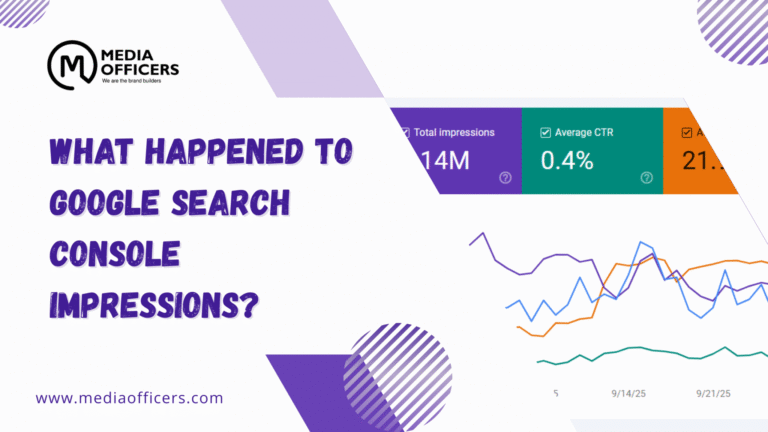Meta cuts political ads in the EU mark a turning point in digital campaigning across Europe. In response to the new Transparency and Targeting of Political Advertising law that takes effect Oct 10, Meta will end political ad delivery in the EU at 6 p.m CET on Oct 6. Meta says the law requires explicit consent from each user to use data for political or issue based targeting, a standard the company regards as unworkable at scale. The result is a sudden halt that shifts how campaigns will reach voters in the months ahead.
What happened this week
The European Union has rolled out the Transparency and Targeting of Political Advertising law, known as TTPA. Under the rules, platforms must obtain explicit, separate consent from each user before data can be used for political or issue based targeting. Meta has argued that implementing these requirements at scale would create untenable complexity and legal uncertainty. As a consequence, political ad delivery in the EU is suspended starting this week and will remain offline until further notice. This move aligns with Meta’s broader stance that large scale consent flows are difficult to operationalize across diverse member states and languages.
Why this matters for advertisers
For advertisers and campaign teams, the policy change means an immediate pause on EU political ad activity. Agencies must pause, replan, and reset timelines for upcoming elections and legislative debates. The shutdown also necessitates updates to API integrations and campaign-management tools. In practice this creates a vacuum in paid outreach that many advocacy groups rely on to mobilize audiences across different member states. The abrupt halt is likely to tighten the focus on organic reach and non paid channels as a temporary bridge while regulatory guidance evolves.
How the EU TTPA works and what it demands
The TTPA aims to deliver greater transparency and tighter control over political advertising. The core requirement is explicit consent from individual users for data use in political or issue based targeting. The law also emphasizes clear public disclosures about how political ads are targeted and who is behind them. Platforms must maintain separate consent records and provide accessible mechanisms for users to withdraw consent. Meta has argued that meeting these standards without introducing significant friction is not feasible at scale, which partly explains the current pause in EU political ads. In practice, campaigns may need to rely more on general messaging, community engagement, and trusted information channels that do not require granular targeting.
Strategic implications for advertisers and campaigns
The temporary halt on EU political ads means agencies need to rethink audience reach in the near term. Marketers may pivot toward content driven engagement, organic reach, and community building while regulatory questions are clarified. Consider focusing on governance, message clarity, and transparency in public communications to maintain trust during this transition.
This move illustrates that Meta cuts political ads in the EU as regulators push for tighter data handling. The implication is that the landscape for political communication in Europe will shift toward organic and owned channels, with paid reach constrained by consent based targeting and strict data usage rules. Campaign teams should monitor how publishers, platforms, and partners interpret the TTPA and maintain flexibility to adjust strategies quickly. As budgets tighten, the emphasis will likely move from broad micro targeting to broader audience education and mobilization efforts that work within the new constraints.
Broader regulatory landscape and global context
EU privacy and transparency rules continue to evolve, shaping how platforms monetize and how political actors reach audiences. The TTPA sits alongside a slate of data protection measures that push for greater user control and stronger disclosures about political advertising. In other regions, expectations differ, but the momentum toward consent driven targeting and transparency is rising. The Meta decision to pause political ads in the EU serves as a high profile example of regulatory risk management for multinational platforms. It also signals that companies are prioritizing legal compliance and user trust even when that means losing a traditional paid channel for political messages.
Practical steps for advertisers and agencies
- Audit all data flows used for political or issue based advertising to ensure consent mechanisms align with local requirements.
- Develop and test consent management workflows that capture explicit opt in for each data use case.
- Rework creative strategies to maximize impact through organic content, influencer collaborations, and community outreach.
- Prepare contingency campaigns that rely on non targeted reach and offline activities to maintain visibility during a potential multi month pause.
- Coordinate with partners and vendors to update APIs and dashboards for EU compliant campaign management.
- Invest in first party data strategies that build consented audience relationships outside paid targeting.
- Document compliance processes and maintain auditable records to facilitate regulatory reviews.
Collaboration with legal counsel and platform partners will be essential as the EU clarifies interpretation of the TTPA. The overarching goal is to preserve trust with voters while continuing to communicate important policy positions across the region.
Timeline and next steps for EU campaigns
Meta will suspend political ads in the EU on Oct 6 at 6 p.m CET as part of the TTPA enforcement. The new rules take effect on Oct 10, requiring platforms to demonstrate explicit consent for data use in political targeting and to disclose targeting parameters to users. In the near term, teams should conduct a comprehensive data and tech audit, align with legal counsel, and map new audience access options that do not depend on targeted political ads. Expect ongoing updates from platforms as they refine enforcement signals and user feedback. Organizations should also begin communicating with supporters about the change and explain the shift in how messages will be delivered in the coming months.
Frequently Askeded Questions
What is driving the EU policy change on political ads
The EU has introduced the TTPA to increase transparency and require explicit consent for data use in political targeting. The intent is to protect users while clarifying who is delivering political messages.
When does the EU political ads pause take effect
The EU pause is in effect starting on Oct 6 at 6 p.m CET for political ad delivery. The legal requirements of the TTPA begin on Oct 10, which governs future ads and data practices.
What can advertisers do now to reach audiences
Shifting toward organic content, community management, and non targeting channel strategies will be essential until consent driven targeting is feasible again. Build transparent messages and invest in content that resonates without relying on micro targeting.
Will this affect non political advertising
Non political advertising remains allowed but subject to platform rules. The pause applies specifically to political and issue based advertising. Brands can continue with broad audience campaigns and general branding messages outside political topics.
Conclusion
Meta cuts political ads in the EU underscores how strict regulatory regimes are reshaping digital campaigning. With consent based targeting likely to be slow and complex to implement, platforms and advertisers must pivot toward organic channels, transparent communications, and resilient multi channel strategies. As the EU regulatory landscape evolves, the most successful campaigns will blend compliance with creative relevance, delivering value to audiences while respecting privacy and consent requirements. Stakeholders should stay informed about regulatory updates and be ready to adapt messaging, tactics, and measurement approaches as the rules evolve.








